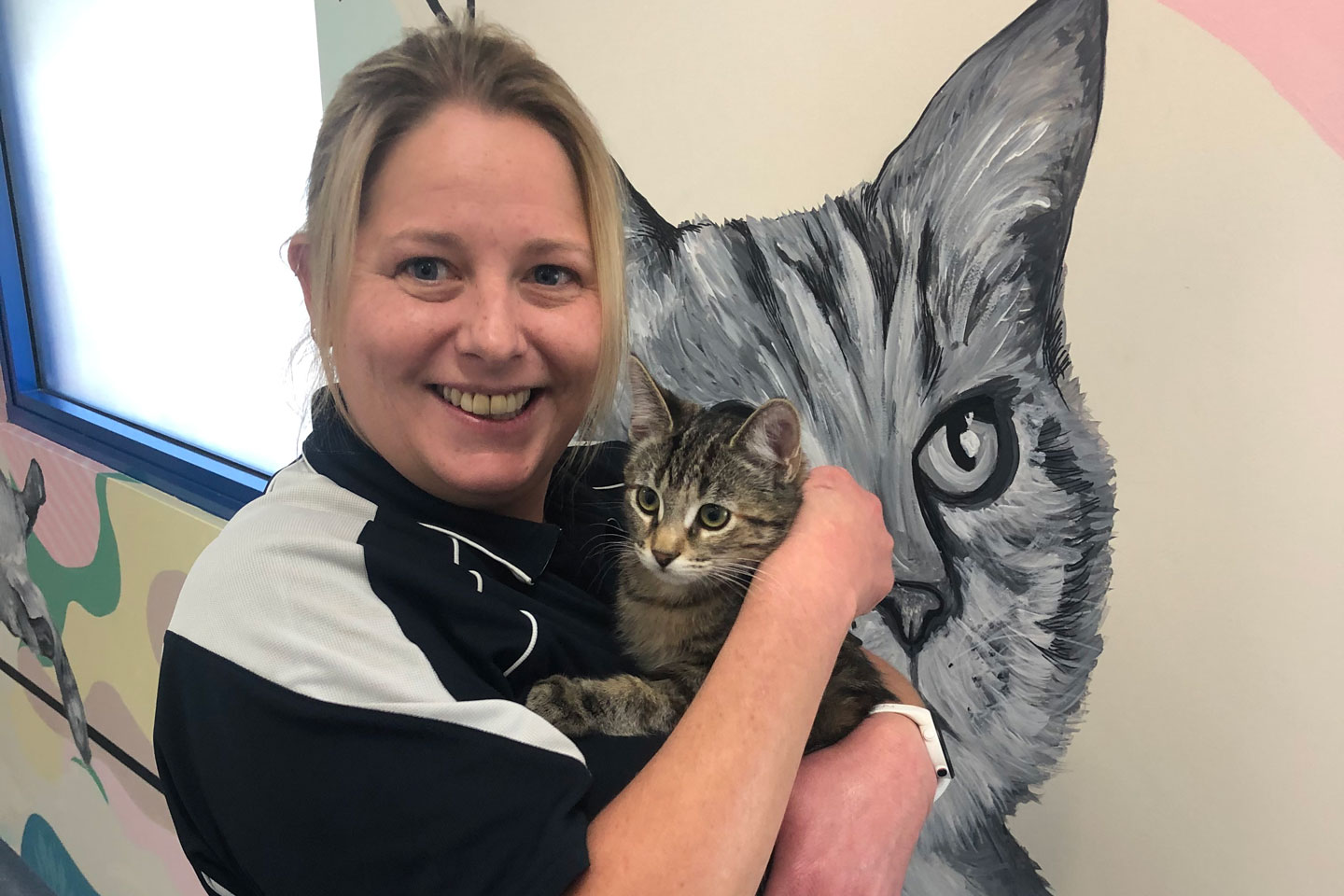

With the women of Iran’s fight for basic rights throwing a spotlight on one of the world’s most oppressive regimes, it’s timely that this year’s 16 Days of Activism campaign by the UN is focusing so squarely on gender-based violence.
Women and children are often the first casualties in a downturn in economic prosperity and for many of WA’s Not For Profits, the demand for their services is busier than ever.
As this year’s 16 Days of Activism campaign draws to a close, several NFPs reflect on how they can assist in the fight for equality and an improvement for the futures of WA’s women, girls – and pets.
Pets need protecting too
It’s often forgotten that domestic violence affects all family members, including pets.
RSPCA WA Programs Manager Nicky White said pets are often used as a manipulation tool in family and domestic violence situations, and many women will delay seeking help for fear of what may happen to their pets.
The Pets in Crisis program, run by RSPCA WA, is a free service providing a temporary home for pets whose owners are experiencing immediate family and domestic violence. Pets are placed in a loving foster home for up to three months while their owner seeks refuge or temporary accommodation of their own. Offered throughout Perth and the metropolitan area, the South West, and in the Great Southern, it is a service that is funded by the State Government.
Since its inception in July 2017, 260 pets and 173 families have been helped by the program.
“The Pets in Crisis program helps to alleviate some of the logistical stress of escaping a dangerous home environment,” said Nicky.

A case worker or healthcare professional needs to make a referral on the pet owner’s behalf to RSPCA's Pets in Crisis program.
“The owner will receive an application form to complete and return to the Pets in Crisis team, so their pet can be assessed and matched with a suitable foster carer. This process usually takes a couple of days.”
Client Annie* said she remembered the feeling of absolute despair as she was frantically trying to find somewhere for herself, her two kids, and their dogs, Buffy and Bandit, to live, all while keeping the perpetrator of the violence at bay.
“When I first heard about the Pets in Crisis program I just broke down in tears,” Annie said.
Both dogs went into the program while Annie and her kids secured short-term housing.
“While it was hard being without Buffy and Bandit, knowing they were safe and happy was an incredible comfort,” said Annie.
“While in care they had all their vet needs taken care of, including sterilisation, vaccinations, dental work and microchipping, which was amazing.
“Unfortunately, real life isn’t a fairy tale and while we’ve managed to be reunited with Buffy, I had to make the heart-breaking decision to surrender Bandit due to a number of reasons. But I know he’s been adopted by a wonderful man who gives him all the love, attention and couch space he can handle.
“The day we got Buffy back was like every Christmas and birthday wrapped into one. It was just what we needed. Getting her back healed us.”
Breaking contact the first step
On average, a woman coming to St Bart's suffering some form of abuse will attempt to leave or break communication with the male multiple times before they succeed.
It will take approximately seven attempts for a woman to leave an abusive relationship before they are successful in doing so. If they exceed seven attempts at leaving, the potential of continuing the cycle for the rest of their lives increases dramatically.
Through their Women’s Service, St Bart's is able to offer a safe and supportive environment for up to 28 women to work through their trauma until they are able to move on with their lives.

St Bart’s Women’s Service case managers work closely with each individual to tailor the support required.
“We recently had a consumer in service who has since gained long term housing,” said Samantha Drury, St Bart's CEO.
“She came to us extremely broken and fearful of the perpetrator who nearly killed her on multiple occasions. The hospital treated her as if she had injured herself and then placed her on a Mental Health hold, which for her reinforced what her partner would say to her about no one believing her.
“The team at our Women’s Service worked extremely closely with this lady to build a strong and supportive relationship. By the time she left us she was confident, had learned who she was again, and found a reason to smile.”
St Bart's Women’s Service is funded through a combination of generous donations, grants, St Bart's reserves and rent paid by the women.












